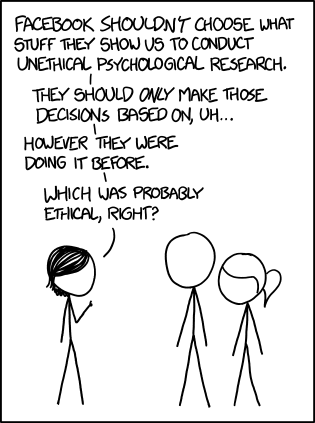
By now, the majority of people who keep up with the news will have heard of Cambridge Analytica, the whistle blower Christopher Wylie, and the news surrounding the harvesting of Facebook data and micro targeting, along with accusations of potentially illegal activity. In amongst all of this news I’ve also seen articles that this is the “awakening ” moment for ethics and morals AI and data science in general. The point where practitioners realise the impact of their work.
“Now I am become Death, the destroyer of worlds”, Oppenheimer
With regard to the Manhattan project and Oppenhiemer’s struggles with conscience at what they were doing, there’s a really interesting paper written by James Hijiya, The Gita of J. Robert Oppenheimer, well worth a read if you have a few minutes.
This is not that moment for Data Science and AI.
You may have seen articles from, The next web: the real danger of AI, Techworld: ethics in the age of AI, Kim Nilsson’s: Data Science for Evil and others. What is really the point here is the data ownership and data processing ethics. The actual usage of that data and any AI applied to it is not the problem.
We already have some pretty strong laws on data use and with GDPR in May 2018 the consequences of breaking those rules and the rights of the users themselves are much clearer. If all the people who were targeted by Cambridge Analytica had consented fully to have their data used and to be targeted then this wouldn’t be a story (at least the data side of it). This is another moment for data owners and processors to ensure that they are on the correct side of the ethical boundaries, but there is nothing in this to say that AI or data science should not be used.
We’ve been using data to inform our decisions ever since there was data – this is no different, it’s just easier to scale. Andrew Ng has been heard to say that AI is the new electricity. In my opinion he has it wrong, AI is just a better conducting wire: it’s your data that is the valuable electric charge that powers everything. There’s no moral or ethical shift with regard to the tools, the shift is on companies using our data without our informed consent. This is what has got to stop.
While I don’t doubt that, AI and Data Science will have their moment further down the line, it’s a big part of current discussions. If we’re lucky then we’ll have a code of practise in place to prevent the problem before it occurs. Human condition being what it is, there will always be someone who want to take advantage of other people’s hesitance and some of these will get away with it.
We can all help here. By not being part of the problem.
- Nothing is free. If you are signing up to a free service then you will be giving permission for your data to be used to pay for that service. Be aware of that and choose what information you give. Similarly, what are you posting that is publicly visible?
- Be aware that there are constantly people out there who are trying to emotionally manipulate you. Whether this is a charity looking for donations, a retailer wanting you to buy their product or a political movement wanting you to vote in a certain way. This is not new. Question the information that is presented to you. Do not blindly share and repost items without questioning your cognitive biases.
- If you are working in the industry, ask yourself where your data is coming from. Taking data without permission is just as unethical as reading that persons mail to find out about them. Just because it is easily, doesn’t mean you should do it. Ask where the data sets have come from and the permissions behind them.
On the other side, micro targeting is not in itself a bad thing. I have willingly given my data to many brands so that they can send me the correct offers and products when I want them. For the most part it works. We live in a connected world and information about us is out there. We have some reasonable data privacy laws in place, but these are not worldwide. Different online services fall under different laws so know what it is you’re giving up in order to share your dinner with the world.